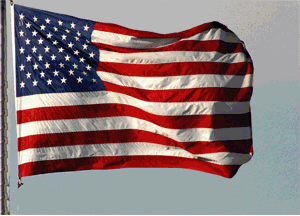Feb. 19, 2023, marks the 550th anniversary of the birth of a man that changed modern science forever, Nicolaus Copernicus. His observations drastically altered the way we see ourselves in the wider universe and became the foundation for astronomy, but they were also banned for some hundred years. Since his time, censorship and suppression of science have changed, but are still around today.
Copernicus’ observations
Copernicus was born in Torun, Poland, which was then a part of Royal Prussia. He came from a relatively wealthy family, which meant he had access to good education and benefitted from familial connections. He first studied at the University of Krakow where he received a liberal arts education, studying everything from art to ancient greek. At university, he discovered his deep interest and talent for astronomy, the study of the heavens. Throughout his life he made a variety of observations of the night sky with his bare eyes, looking at eclipses and the alignment of the stars. From his notes, he began to piece together a new model for the universe. His model put the sun, not the earth, at its center.
At that time, the commonly accepted model of astronomy was geocentric, meaning it held the earth at its center. The earth was thought to be an immovable object, with the stars, planets and sun all revolving around it. Copernicus shattered this belief with his observations. He saw that the sun, not the earth was the center of our solar system. He also believed that the earth spun on its axis once every 24 hours, and that a slight tilt in the axis accounted for the seasons. His work, titled “On the revolutions of the heavenly spheres” was published in 1543, the same year that he died.
It was only several years after his death that the book presented itself as a problem. The church took issue with the work after the prominent astronomer, Galileo Galilei spent time defending it and building on Copernicus’ work. Martin Luther has been quoted in opposition to his work, stating that the Bible claims the earth is the immovable center of the universe, thus Copernicus must be wrong. His book was placed on the index of forbidden books in 1616 and was only removed in 1758.
How science has changed
Since Copernicus’ time, science has changed a lot. It has opened up as a field, with hundreds of sub-specialties being discovered and studied. Who does science has also changed. Since becoming an institution, science is no longer just a wealthy European’s game but boasts a rich diversity of people that dedicate their lives to studying how things work. Science as a field is still sometimes suppressed though when the truth stands to upset the status quo.
According to Glenn Branch, the deputy director of the National Center for Science Education, the most recent example of scientific suppression came out of the Soviet Union in the 1920s. A scientist named Trofim Lysenko rejected Darwinian biology and pushed against the well-accepted theory of natural selection in which an organism best suited to its environment will go on to survive. Through his rejection of Darwin and modern genetics, he claimed to know how to cultivate massive crop yields through his own technique. His beliefs and ego proved deadly. Thousands of scientists who spoke out were impressed and some were executed and his bad science assisted in creating a deadly famine, where seven million Soviets starved.
Suppression today
Fortunately, there hasn’t been an example as extreme, widescale or immediate as Lysenkoism since the 20s, but scientific suppression is still around. Fossil fuel companies have been found guilty of understanding the science of climate change and its impact on the environment and have suppressed the growth of the field in favor of their own interests. In many states, legislators advocate for more relaxed regulations on scientific teachings that would enable evolution to be taught as a “theory” instead of accepted science, encouraging creationism in the classroom. During the Trump administration, several government agencies had limits placed on their communications with the public regarding science, and the phrase climate change was even banned from some.
“People or institutions in positions of power censor science, when they think it's in their interests in one way or another,” said Mr. Branch.
Much of these abuses of power come from some ingrained interest, whether that be making money or earning respect. Mr Branch says that the suppression of science is very dangerous.
“Suppressing science can obstruct the progress of science itself…Openness promotes scientific progress in enabling scientists not to have to reinvent the wheel. It can obstruct the development of technology," he said.
In order to keep suppression in check, he recommends supporting watchdogs that hold people accountable for censorship. He also says that supporting politicians who understand the value of science and will fight to keep it open is crucial.
On the anniversary of Copernicus, hopefully, we can take a lesson from his life to understanding the value of science and how much is lost when it is suppressed.
